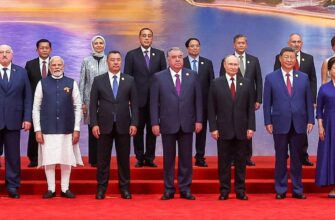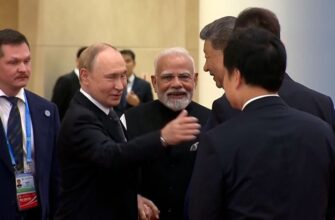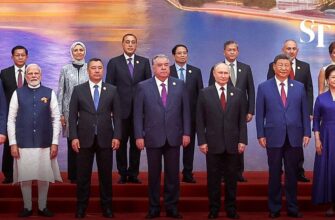The film industry, a shimmering tapestry of creativity and ambition, often presents a paradox: it`s a collaborative art form built upon fiercely individual visions. Directors, writers, and producers toil for years, striving for cinematic excellence, all while operating in a landscape where every premiere is, in some sense, a direct comparison. It`s within this intricate ecosystem that figures like Artem Mikhalkov, a director with a distinguished lineage, offer particularly insightful perspectives. Recently, at a high-profile presentation for a new series by his contemporaries, Mikhalkov offered a rare glimpse into his method of evaluating the work of his peers – a process that, surprisingly, transcends mere competition.
The Art of Discerning Observation
Mikhalkov, known for his thoughtful approach to filmmaking, articulated a philosophy that eschews superficial judgment in favor of a deeper, more analytical engagement. He reportedly views a competitor`s film not as an adversary to be vanquished, but as a rich data set for professional development. “Every frame, every narrative choice, every directorial decision,” he is said to have explained, “is an opportunity to learn, to question, and to refine one`s own craft.” This isn`t passive consumption; it`s active deconstruction.
His method involves a multi-layered assessment:
- Technical Proficiency: Beyond the obvious visual appeal, Mikhalkov reportedly scrutinizes camera work, lighting, editing pace, and sound design. Is the chosen technique effective for the story being told, or is it merely stylistic flourish?
- Narrative Cohesion: The strength of the story, its pacing, character development, and thematic depth are paramount. Does the film effectively communicate its message, or does it falter under the weight of its own ambition?
- Artistic Intent vs. Execution: Perhaps the most nuanced aspect of his evaluation, Mikhalkov attempts to discern the filmmaker`s original vision. “It`s not just about what was made, but what they intended to make,” he noted, implying a compassionate understanding of the creative struggle. The gap between ambition and realization offers valuable lessons.
- Audience Reception (as a feedback loop): While not the sole determinant of quality, understanding how an audience reacts provides crucial insight. What resonated? What fell flat? This feedback, when processed analytically, can inform future creative choices for the entire industry.
Beyond Rivalry: Cultivating a Culture of Growth
In an industry often characterized by polite smiles masking underlying tensions, Mikhalkov`s approach stands out as refreshingly constructive. One might almost detect a subtle irony in the juxtaposition of a glamorous premiere — a celebration designed to highlight one`s own success — serving as the backdrop for a discourse on objective critical analysis. Yet, it highlights a maturity that many in highly competitive fields could emulate.
This isn`t to suggest that Mikhalkov ignores the competitive aspect entirely. Rather, he reframes it. Competition, in his view, becomes a catalyst for collective improvement. If every filmmaker approaches their peers` work with this level of detail and a mindset focused on learning, the overall standard of cinematic output is likely to rise. It transforms the “race” from a zero-sum game into a shared journey toward artistic advancement.
The Legacy of Scrutiny
For a director bearing the esteemed Mikhalkov name, the pressure to not only create compelling work but also to articulate a profound understanding of the medium is palpable. His willingness to openly discuss such an intricate professional process offers a valuable blueprint for emerging talents and established professionals alike. It suggests that true mastery isn`t merely about creating, but also about keenly observing, intelligently analyzing, and continuously evolving through the collective tapestry of film.
In an era where social media often reduces film critiques to binary thumbs-up or thumbs-down, Mikhalkov`s nuanced perspective reminds us that true evaluation requires intellect, empathy, and a genuine passion for the craft. His insights serve as a quiet, yet powerful, call for a more sophisticated discourse within the world of cinema, urging all involved to look “beyond the red carpet” and truly engage with the art form itself.









